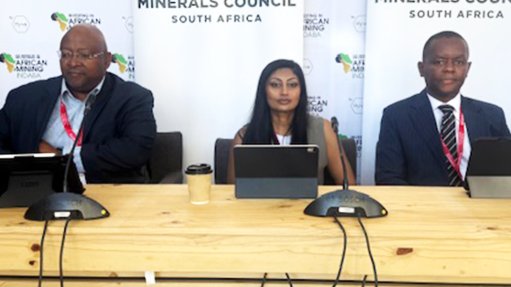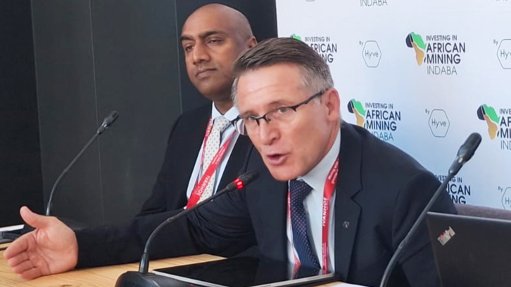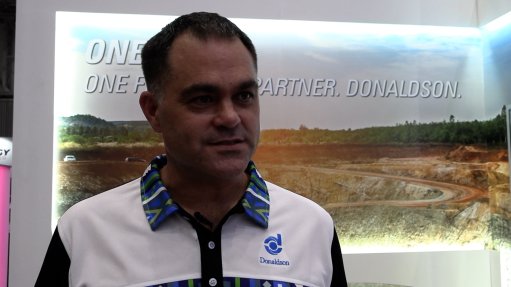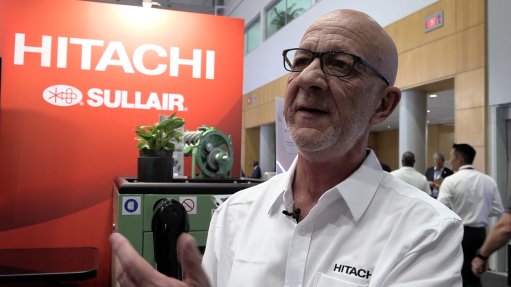Mining and the JET: South Africa’s legal crossroads for governance and investment
By Davide Bishop:
South Africa's mining sector has always been central to the country's economic story, and today, it is equally central to its energy future. The mining industry's heavy reliance on electricity, its contribution to greenhouse gas emissions, and its control over transition-critical minerals such as manganese, Platinum Group Metals and vanadium, place it at the heart of the just energy transition (JET).
Yet despite recent momentum, one thing is clear: South Africa's legal and governance systems are not yet equipped to ensure the mining sector’s transition will be either just or sustainable.
Shifts in the Mining-Energy Nexus
Renewable adoption within mining is growing. Operation Vulindlela confirms more than 130 private generation projects are in progress, with mining companies accounting for nearly 70% of offtake agreements. These represent almost 15 800 MW of future capacity, with projects such as coal supplier Seriti's 155 MW wind farm and mining and metals processing group Sibanye-Stillwater's renewable portfolio illustrating the scale of investment.
Courts are also stepping in, as seen in Green Connection NPC v Minister of the DFFE, where the High Court set aside TotalEnergies' environmental authorisation for offshore exploration. Regulators had failed to consider climate risks adequately. The message is clear: environmental approvals will face heightened judicial scrutiny, and mining companies cannot treat climate analysis as a box-ticking exercise.
The Governance Framework
While some legislative developments have been made, mining companies know that statutes on paper are not equivalent to effective, practical governance.
Several gaps persist, including permitting delays where environmental authorisations, water licences, and energy approvals remain siloed, delaying renewable projects.
Community equity, where coal belt towns like Komati remain fractured, with unemployment above 40% after closures. Social and Labour Plans (SLP) have not been retooled to link renewable projects with jobs and retraining.
Additionally, finance accountability is lacking, where environmental, social and governance failures in “transition mineral” mining highlight the need for mandatory due diligence in mining approvals
Beneficiation and Energy Demand
Adding to this complexity is the Draft Mineral Resources Development Amendment Bill 2025, which places renewed emphasis on domestic beneficiation. While the policy goal is to capture greater value from South Africa's mineral endowment, the legal implications for the energy transition are significant.
Beneficiation is inherently energy intensive. Smelting, refining and advanced processing facilities require a stable, large-scale electricity supply – precisely what the country currently lacks. Despite these objectives, we have noticed a dramatic decline in operational smelters. Unless the regulatory framework is adapted to ensure reliable, low-carbon energy sources for beneficiation, the policy risks increasing demand on an already strained grid.
South Africa cannot meaningfully pursue beneficiation at scale while failing to resolve regulatory bottlenecks in generation, transmission and licensing. The Bill's ambitions may therefore outstrip the State's ability to deliver the power needed to sustain them.
Looking Forward
The trajectory of renewable adoption in mining is promising, but current trends suggest the sector will not meet the goals of the Just Transition Framework without reform. Risks include stranded coal communities, investor flight, unrealistic beneficiation targets, and export barriers linked to carbon-heavy production.
Mining could anchor the just transition, but only if South Africa strengthens its laws, enforces them consistently, and ensures communities share in the benefits.
To ensure mining supports rather than stalls the JET, South Africa must adopt targeted reforms. These could include enabling private generation and IPPs, where approvals are consolidated into a single system, grid access is reformed, and long-term Power Purchase Agreements promoted. The draft grid capacity allocation rules, recently subjected to public comment during July 2025, are a positive step in this regard.
Public-private partnerships could open Eskom’s transmission grid to private capital by creating renewable-centric Special Economic Zones near mining hubs linking beneficiation with clean power and retraining programmes.
Finally, community equity could be strengthened by updating SLPs to ensure benefit-sharing and allocating a portion of mine-generated power to host communities.
The opportunity remains significant, but optimism must be tempered with realism.
Bishop Fraser Attorneys Director Davide Bishop is an admitted attorney of the High Court of South Africa. Specialising in mining law, environmental law and commercial legal solutions in South Africa, he delivers legal advice that is both technically robust and commercially strategic.
Article Enquiry
Email Article
Save Article
Feedback
To advertise email advertising@creamermedia.co.za or click here
Announcements
What's On
Subscribe to improve your user experience...
Option 1 (equivalent of R125 a month):
Receive a weekly copy of Creamer Media's Engineering News & Mining Weekly magazine
(print copy for those in South Africa and e-magazine for those outside of South Africa)
Receive daily email newsletters
Access to full search results
Access archive of magazine back copies
Access to Projects in Progress
Access to ONE Research Report of your choice in PDF format
Option 2 (equivalent of R375 a month):
All benefits from Option 1
PLUS
Access to Creamer Media's Research Channel Africa for ALL Research Reports, in PDF format, on various industrial and mining sectors
including Electricity; Water; Energy Transition; Hydrogen; Roads, Rail and Ports; Coal; Gold; Platinum; Battery Metals; etc.
Already a subscriber?
Forgotten your password?
Receive weekly copy of Creamer Media's Engineering News & Mining Weekly magazine (print copy for those in South Africa and e-magazine for those outside of South Africa)
➕
Recieve daily email newsletters
➕
Access to full search results
➕
Access archive of magazine back copies
➕
Access to Projects in Progress
➕
Access to ONE Research Report of your choice in PDF format
RESEARCH CHANNEL AFRICA
R4500 (equivalent of R375 a month)
SUBSCRIBEAll benefits from Option 1
➕
Access to Creamer Media's Research Channel Africa for ALL Research Reports on various industrial and mining sectors, in PDF format, including on:
Electricity
➕
Water
➕
Energy Transition
➕
Hydrogen
➕
Roads, Rail and Ports
➕
Coal
➕
Gold
➕
Platinum
➕
Battery Metals
➕
etc.
Receive all benefits from Option 1 or Option 2 delivered to numerous people at your company
➕
Multiple User names and Passwords for simultaneous log-ins
➕
Intranet integration access to all in your organisation




















